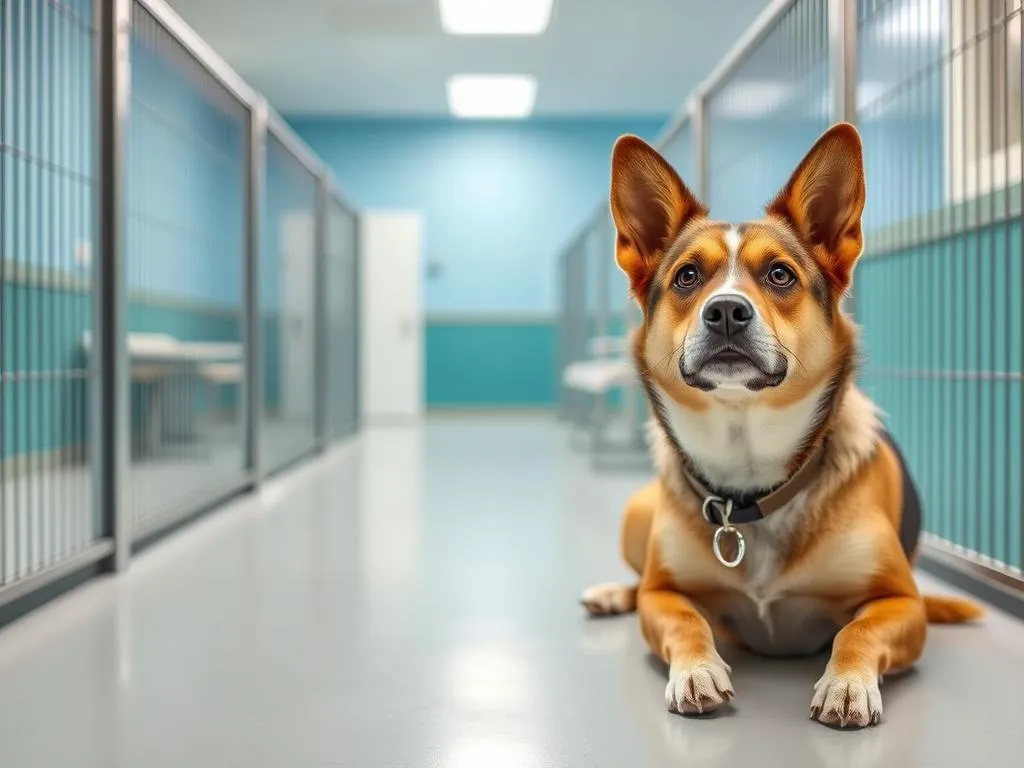
Choosing the right dog boarding facility is crucial for dog owners, especially when planning vacations or dealing with emergencies. A well-suited boarding facility can offer peace of mind, knowing your furry companion is in safe hands while you’re away. In this article, we will explore the essential factors to consider, ensuring that you make an informed decision for your beloved pet.
Understanding Dog Boarding Facilities
Definition and Purpose
Dog boarding facilities are specialized establishments designed to care for dogs when their owners are away. Whether it’s for a vacation, work commitment, or an unforeseen emergency, these facilities provide a safe environment for your pet. The purpose of dog boarding is to ensure that your dog receives proper care, attention, and socialization in a secure setting.
Types of Dog Boarding Facilities
There are several types of dog boarding facilities to consider:
- Kennels: Traditional boarding options that house dogs in individual kennels, providing basic care and supervision.
- Dog hotels: More luxurious accommodations that offer upscale amenities and services, often resembling a hotel experience for dogs.
- In-home boarding: A setup where your dog stays in a caretaker’s home, usually offering a more personalized and home-like environment.
- Dog daycare centers with overnight options: Facilities that primarily focus on daytime care but also provide overnight boarding services.
Key Factors to Consider
Safety and Cleanliness
When evaluating a dog boarding facility, the safety and cleanliness of the environment should be a top priority. A safe facility protects your dog from potential hazards, while cleanliness prevents the spread of illness. Look for:
- Regular cleaning protocols that ensure the space is hygienic.
- Vaccination requirements that protect all dogs in the facility from contagious diseases.
Staff Qualifications and Training
The qualifications and training of the staff are crucial in providing quality care for your pet. Experienced and certified staff members can recognize and respond appropriately to your dog’s needs. Consider the following:
- Staff training in animal behavior and first aid.
- Certifications in pet care or dog training.
Facility Environment
The environment of the dog boarding facility plays a significant role in your dog’s comfort and happiness. Look for:
- Ample indoor and outdoor spaces where dogs can play and exercise.
- Comfortable sleeping arrangements that suit your dog’s size and breed.
- Enrichment activities, such as toys and designated play areas, to keep your dog engaged.
Supervision and Care
Understanding the level of supervision and care provided is essential. Check for:
- The ratio of staff to dogs, which should ideally be low to ensure individualized attention.
- Types of supervision available during playtime and overnight stays, including constant monitoring and interaction.
Health and Emergency Protocols
A reputable facility should have clear health and emergency protocols in place. This includes:
- Procedures for emergencies, such as access to a veterinarian and first aid resources.
- Health requirements for dogs, including up-to-date vaccinations and flea/tick treatments.
Services Offered
Basic Boarding Services
Most dog boarding facilities provide basic services that include:
- Standard boarding packages that cover feeding, exercise, and care.
- Established feeding routines that align with your dog’s dietary needs and preferences.
Additional Services
Many facilities offer additional services to enhance your dog’s stay, such as:
- Grooming options for regular maintenance and hygiene.
- Training sessions to reinforce obedience and good behavior.
- Individualized care plans for dogs with special needs or medical conditions.
Socialization Opportunities
Socialization is vital for a dog’s well-being. Facilities may offer:
- Group playtime to help dogs interact with others, promoting social skills.
- Compatibility assessments to ensure dogs can safely play together.
Reviews and Recommendations
Importance of Researching Facilities
Before choosing a dog boarding facility, it’s crucial to do thorough research. Look for:
- Online reviews on platforms like Google, Yelp, and Facebook to gauge the experiences of other pet owners.
- Word-of-mouth recommendations from friends, family, or local pet owners who have firsthand experience with specific facilities.
Visiting the Facility
A personal visit to the facility can provide valuable insights. During your tour, pay attention to:
- The overall cleanliness and organization of the space.
- The demeanor of the staff and how they interact with the dogs.
- Any specific policies or practices that stand out to you.
Prepare a list of questions to ask staff members, including their protocols for emergencies and daily routines.
Pricing and Policies
Understanding Cost Factors
Understanding the pricing structure of dog boarding facilities can help you make an informed decision. Consider:
- A breakdown of typical boarding fees, which can vary based on location and services offered.
- Additional costs for extra services, such as grooming or training sessions.
Cancellation and Refund Policies
Before booking, make sure to understand the facility’s cancellation and refund policies. This includes:
- Potential fees for cancellations or changes to your reservation.
- Flexibility regarding changes in your travel plans.
Preparing for Boarding
What to Bring
Preparing your dog for boarding involves packing essential items to ensure their comfort and well-being. Bring:
- Food and any necessary medications, clearly labeled.
- Comfort items, such as a favorite blanket or toy, to help your dog feel at home.
- Documentation needed, including vaccination records and emergency contact information.
Transitioning Your Dog
To help your dog acclimate to the boarding experience, consider the following tips:
- Gradually introduce your dog to the facility through visits or short stays.
- Maintain a consistent routine to reduce anxiety and help your dog adjust.
Conclusion
Selecting the right dog boarding facility is a significant decision that can impact your pet’s well-being. By considering factors such as safety, staff qualifications, facility environment, and available services, you can ensure your dog is well cared for while you are away. Take your time to research and visit multiple facilities, ask questions, and trust your instincts. Share your personal experiences or ask any questions you have in the comments below!









